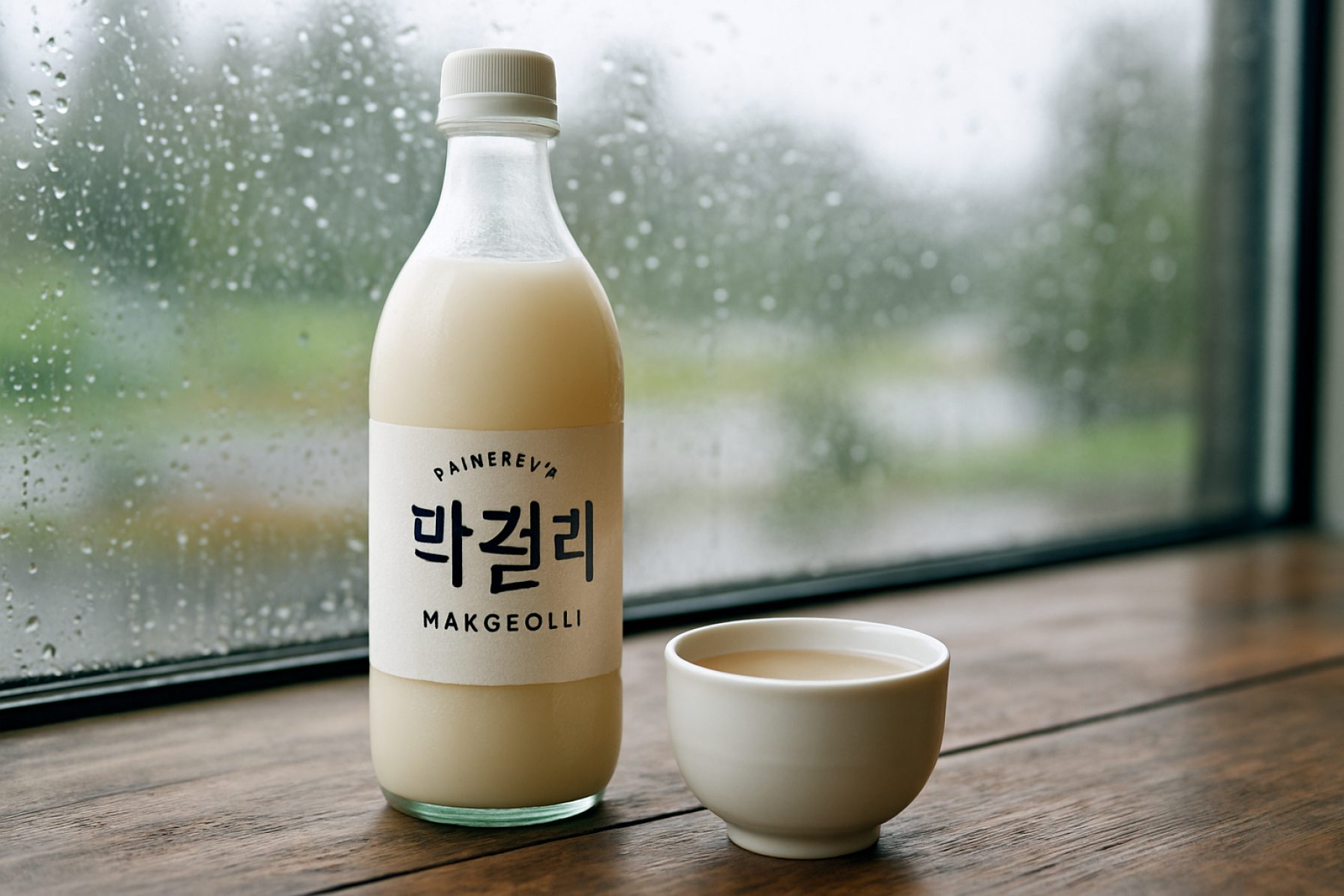Meet the Siblings Bringing Korea’s “Magic Milky Brew” to Seattle’s Trendiest Tasting Rooms
The Jung siblings launch Rainbrew’s unfiltered makgeolli, hoping to kick off a Korean rice wine phenomenon in the U.S. for 2025 and beyond.
- First unpasteurized makgeolli brewery in Washington
- Makgeolli alcohol content: 6–8% ABV—lower than most wines
- Makgeolli sales in the U.S. jumped 40% since 2022
- Rainbrew uses just rice, water, and nuruk (fermentation starter)
Sake has held the spotlight in America’s rice wine scene for years—but a bold, milky challenger is brewing in Woodinville, Washington, with plans to conquer Seattle’s trendy bars and beyond.
At Rainbrew’s tasting room, you’ll find siblings Sophia and Peter Jung, local pioneers of Korea’s oldest alcoholic tradition: makgeolli. Their mission? Hook curious palates on a drink long overshadowed by sake and soju—and bring an ancient Korean custom up to speed with 2025’s booming “craft everything” movement.
What Exactly Is Makgeolli—and Why Should You Try It?
Makgeolli is Korea’s answer to craft beer and natural wine rolled into one. With its creamy, almost glowing cloudiness and signature tang, it’s winning over sommeliers and casual drinkers alike.
Brewed with only rice, water, and nuruk—a wild fermentation starter so ancient it predates modern science—it offers light effervescence and notes that range from banana and melon to yogurt and sourdough. Unlike sake, which is clear and polished, makgeolli is rustic, unfiltered, and teeming with living cultures.
Unpasteurized, it packs a zesty bite, funk, and complexity—similar to kombucha, but with a gentle 6–8% ABV. The Jungs stick to this traditional style, believing vibrant flavors and probiotic benefits set their craft apart from the mass-produced imports you might see at big groceries.
(Explore traditional drinks at NY Times and BBC.)
How Did Rainbrew Start This Rice Wine Revolution?
The Rainbrew story began as many pandemic-era projects did: out of necessity and nostalgia. Peter Jung watched his mother—traveling between Seattle and Korea—pine for genuine makgeolli, frustrated by bland, pasteurized versions in the U.S.
So Peter, not even much of a drinker, started experimenting. He soon realized what generations of Koreans knew: makgeolli’s wild fermentation often sits better with those sensitive to typical Western alcohols—a relief for many Asian Americans with alcohol flush reactions.
Sophia and Peter’s journey was never just about launching a new beverage. For them, this was cultural survival—reviving centuries-old methods banned during the Japanese occupation of Korea and nearly lost to industrial shortcuts.
By early 2025, Rainbrew’s small-batch makgeolli was leaving a mark on Seattle’s beverage map—sparked by curiosity, local partnerships, and a commitment to authenticity.
How Is Makgeolli Changing American Food and Drink Culture?
Makgeolli is more versatile than you might imagine. Local businesses like Sweet Alchemy Ice Creamery harness the leftover lees (sediment) from Rainbrew’s process to churn boldly flavored ice cream, described by young customers as “sweet white bread in a cone.”
Seattle restaurateurs and bartenders are catching on. With U.S. makgeolli sales up 40% since 2022, the “milky wine” is now showing up everywhere from Korean barbecue joints to cutting-edge cocktail menus. The only challenge? Teaching customers to say “makgeolli”—rhymes with “broccoli,” but with an ‘m.’
Curious about other global drinks trending in America? Discover what’s next at NPR and Eater.
Q&A: Everything You Need to Know About America’s Makgeolli Moment
Q: Is makgeolli healthier than other alcoholic drinks?
A: The combination of wild fermentation, live cultures, and lower alcohol gives Makgeolli probiotic perks—many claim it’s gentler on the system.
Q: Where can I get authentic makgeolli?
A: Besides Rainbrew in Woodinville, small-batch brewers are cropping up in New York, L.A., and Portland. Seek out unpasteurized, cloudy bottles with a short shelf life for the true experience.
Q: What does makgeolli pair with?
A: Traditionally, it’s a rainy-day drink—think Korean pancakes, spicy stews, or even fusion bar snacks.
Q: Why’s it called “Rainbrew”?
A: In Korea, rainy weather is talismanic for makgeolli outings. The Jungs’ mother named their venture after their home’s drizzly climate and the beverage’s rainy-day tradition.
How to Experience Makgeolli—Like a Pro
- Swirl before pouring—sediment is your friend!
- Serve very cold, in wide-brimmed bowls or glasses for optimum aroma
- Pair with savory pancakes (jeon), kimchi, or grilled meats
- Ask local brewers if their makgeolli is unpasteurized for the freshest flavors
Ready to Sip Seattle’s Hottest Asian Import? Visit craft breweries like Rainbrew or ask for makgeolli at local bars—don’t miss your chance to taste this rising international trend before it goes mainstream.
New to Makgeolli? Here’s your tasting checklist:
- Find a local brewer or market with unpasteurized makgeolli
- Pair your first glass with classic Korean fare
- Learn to pronounce it: “mahk-guh-lee” (just like broccoli with an “m”!)
- Invite a friend, compare notes, and spread the rice wine revival
